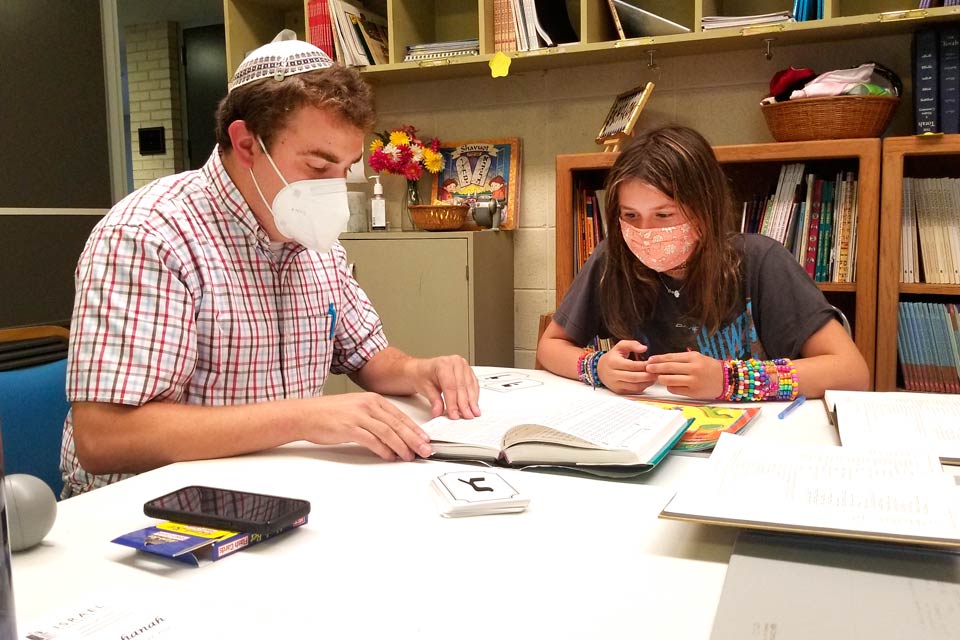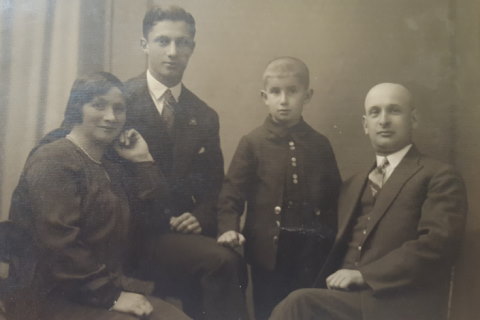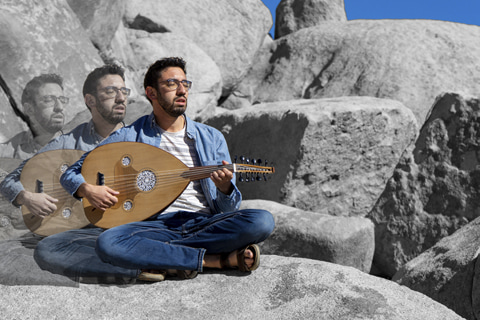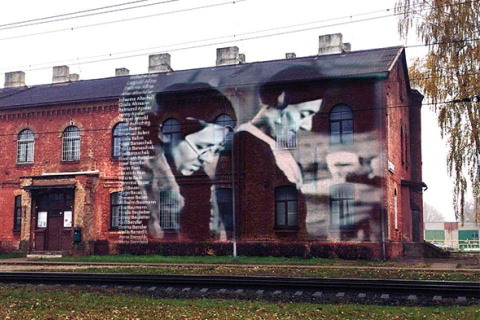When Prayer Gets Political

Rosen teaching a student at his temple in Jackson, Mississippi.
Photo Credit: Courtesy Joseph Rosen
May 10, 2022
By Penny Schwartz, P'13
Do politics belong in the pulpit?
The answer would seem easy at Beth Israel Congregation in Jackson, Mississippi, whose rabbi was a major figure in the civil rights movement in the 1960s.
But the temple's current rabbi, Joseph Rosen '14, still wrestles with striking the right balance between spirituality and activism.
In May 2020, less than a year after Rosen took the helm of the Reform synagogue, George Floyd was killed by a group of police officers in Minneapolis.
Having grown up nearby in Rochester, Minnesota, the death struck Rosen close to home.
"The surging violence brought on by the killing of George Floyd sparks hot flames in my soul," Rosen sermonized a few days after the killing. "To see the lists of stores looted on streets on which I have walked has me quaking with fear, with grief and with rage."
Though many in his congregation agreed with his remarks, others said they didn't believe it was appropriate for a rabbi to wade into such a highly charged issue.
"Some people don't go to services to hear politics from the rabbi," Rosen said.
The Past is Prologue
It's not the first time Beth Israel's members have had this debate.
In the 1960s, the synagogue's rabbi, Perry Nussbaum, emerged as a leading civil rights activist. He spearheaded the creation of an integrated interfaith clergy group that raised funds to rebuild torched Black churches and visited protesters in prison, many of whom were Jewish, when they were jailed for organizing and demonstrating.
In 1967, the Ku Klux Klan firebombed the temple and the rabbi's home.
Today, Beth Israel's role in the civil rights movement is celebrated. Since 2018, it has been a designated stop along Mississippi's Freedom Trail.
But back then, there were members of Nussbaum's congregation who believed he should steer clear of politics.
"Like many congregations in the South — both Jewish and Christian — there were members who were for civil rights and joined that battle," Rosen said. But "there were congregants who didn't agree with civil rights. They were combative towards the rabbi, which caused tension within the community."
Path to the Pulpit
Rosen's journey to becoming a rabbi started in his sophomore year, with his first trip to Israel on Birthright Israel. Half a year later, he returned to Haifa to teach English. At Brandeis, he majored in psychology and served in several leadership roles at Hillel.
By the time he graduated, he felt rabbinical school was the best way to combine his passion for Judaism with the commitment to serving others that he learned from his parents, both doctors.
"That interest in Judaism and passion for helping people is where I found the path to become a rabbi," Rosen said.
Beth Israel, which has 175 families, is Rosen's first posting after rabbinical school. He was unfamiliar with the South and wasn't sure what to expect.
When he arrived, he spent much of his time learning and listening. He said he was smitten by the warmth and openness of Beth Israel's leaders.
"There was a lot of potential in the congregation because they were hungering for an energetic rabbi," he said. "They made me excited about being in their Jewish community."
But when it came to politics, Rosen found the congregation was divided. Some members thought the best approach was to avoid the kinds of controversies that have divided communities across the country.
On the other hand, Rosen said he feels committed to upholding Beth Israel's legacy of fighting for social justice.
"The synagogue has to be a place where we can experience vulnerability," he said. "Discomfort can be a strong catalyst for transformation and growth. By engaging difficult issues, we can learn to be patient listeners in a divided world."
When Rosen does speak about racism and social justice, he stresses unity and community.
"What's important is to stay insistent on a message of empathy, to say we are all in this together and have to work through it together," Rosen said.
Pursuing Social Activism
Following in Nussbaum's footsteps, he has forged interfaith ties with other clergy members through social justice initiatives and other programs that promote mutual respect and tolerance.
Two years ago, following a statewide arrest of immigrant workers by federal officials that grabbed national media attention, he offered a prayer at a vigil on behalf of the children who were detained and separated from their families.
He also joins interfaith clergy annually for the Transgender Day of Remembrance ceremony to recall the memory of those who lost their lives either through violence against transgender people or those who died by suicide.
Two years ago, Rabbi Rosen befriended one of the Presbyterian ministers at the vigil, resulting in a pulpit swap. The pastor delivered a sermon on the week's Torah portion at the synagogue's Friday night service, and Rosen spoke at the church's Sunday morning worship.
As the congregation has emerged from the pandemic, Rosen remains focused on overcoming the isolation many have experienced.
"A top priority has been community building within the synagogue. That is a form of activism in itself," he said.
"I hope to increase the capability of the congregation to be present and empathetic listeners, that we find how our voice can contribute to tikkun olam, repairing the world."



